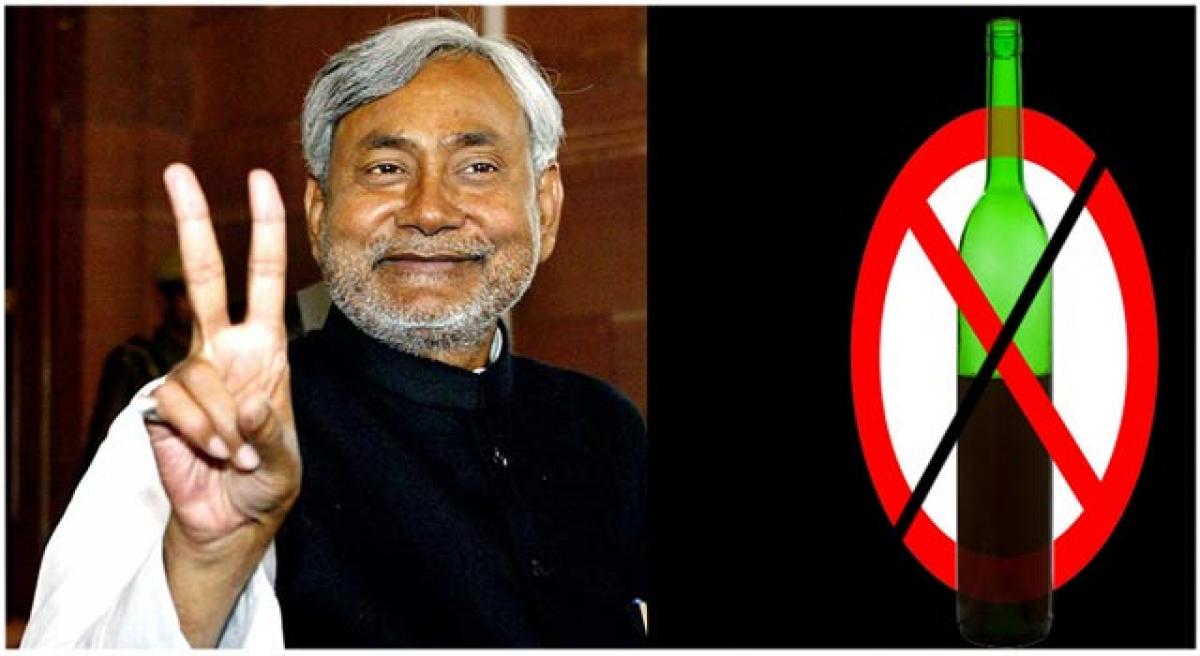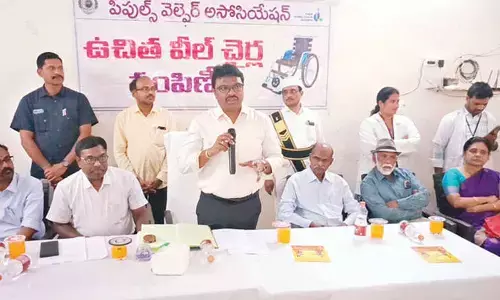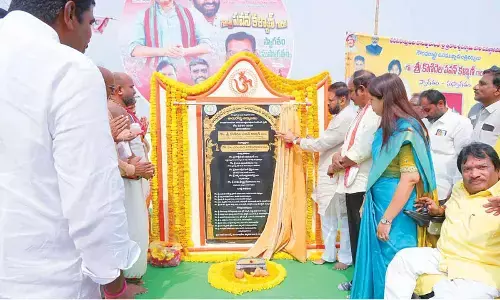Prohibition in Bihar: Cheers for toddy.

It is sad to see a promising politician stumble and be in danger of falling flat on his face. Till the Janata Dal United\'s setback in Bihar in the last parliamentary polls, its foremost leader, Nitish Kumar, was riding high.
It is sad to see a promising politician stumble and be in danger of falling flat on his face. Till the Janata Dal United's setback in Bihar in the last parliamentary polls, its foremost leader, Nitish Kumar, was riding high.
He had won two successive assembly elections in 2005 and 2010 and was seen as someone who could be prime minister one day.
However, the blow which his party suffered at the hands of the Bharatiya Janata Party (BJP) and its allies in 2014 when the saffron combine won 31 of the 40 seats in Bihar clearly threw Nitish Kumar off balance.
It is evident from some of his recent acts that he hasn't yet recovered his poise, although he demonstrated his continuing influence in the state by decisively defeating the BJP in the 2015 assembly elections.
After his victory, it might have been expected that Nitish Kumar will settle down to give good governance to Bihar, which has been his hallmark for the last 10 years. Unfortunately, these hopes have been belied. Instead of focussing on development, Nitish Kumar has become bogged down with his latest obsession with prohibition.
This fetish is a new one for him. Throughout his career as a partner of the BJP and later as the chief minister from 2005 to 2014, he never mentioned the subject.
It is unlikely that he thought long and hard on the matter during this period, weighing all the pros and cons, including the rise of Al Capone and the Mafia in America in the 1920s as a result of the ban on liquor consumption.
Instead, like most Indian politicians, he is obviously guided by short-term considerations, generally related to cultivating support bases. In this case, Nitish Kumar's objective is to win over the votes of women who hold up half the sky, according to Mao Zedong.
In the main, he is targeting the poor, lower middle class and rural women, leaving out those in the higher strata of society who frequent the "cocktail circuit".
Nitish Kumar's claim is that prohibition will reduce, if not eliminate, instances of women being beaten up by inebriated husbands who also spend the family's meagre income on buying alcoholic drinks. Following his diktat, the chief minister's supporters say that the villagers have never been happier.
So far, so uplifting. However, Nitish Kumar has gone where no advocate of abstinence has gone before – to borrow a line from the "Star Trek" science fiction serial – to formulate an unprecedented law which will incarcerate not only the tippler but all adult members of his family.
Thus, the sins of the consumer will engulf his relatives as well. There are also provisions for the confiscation of the offender's property and penalising an entire village for harbouring the degenerate reprobate.
It is not known if the proposed bill will finally become the law in its present egregious form, or whether it will pass the scrutiny of the judiciary. But, at the moment, it can seem that the chief minister is being driven by a compulsive fad which is capable of clouding one's judgment.
It is possible that Nitish Kumar's weak political position vis-a-vis his foe-turned-uneasy friend Lalu Prasad is behind his current mania. After all, the RJD forged ahead of the Janata Dal United by winning 80 seats with 18.4 per cent votes last year while the Janata Dal-United won 71 seats (16.8 per cent).
Moreover, in the new assembly, one out of every four members is a Yadav, the most influential of the backward castes. While the Yadavs make up 14 per cent of Bihar's population, the Kurmis – Nitish Kumar's caste – comprise only 3.8 per cent.
In terms of both seats in the assembly and support base, therefore, Nitish Kumar is politically vulnerable where Lalu Prasad is concerned. The Chief Minister also knows that he would not have been the chief minister if the RJD leader had not been debarred from holding any office by the judiciary because of his conviction in the fodder scam.
Notwithstanding this disadvantage, Lalu Prasad was the driving force behind the success of the RJD-Janata Dal United-Congress combine. The appointment of the 26-year-old political novice, Tejashvi Yadav – Lalu Prasad's second son – as the Deputy Chief Minister is a concession to the RJD leader's clout.
Given these vulnerabilities, Nitish Kumar evidently had no option but to look for another group of supporters beyond his tiny caste base. But his experiment with prohibition, which has been tried unsuccessfully in several states – Haryana was the latest – is unlikely to be the Chief Minister's magic wand, not least because the Bihar exchequer's annual loss of revenue will be Rs 4,000 crore which the State can ill-afford.
Besides, the half-hearted nature of his policy is evident from the exemption which has been given to toddy, one of the traditional drinks of the poor Bihari, which is why Lalu Prasad insisted on it being kept out of the ambit of prohibition.
As the humble toddy crosses the rich-poor divide to reach middle-class homes, Nitish Kumar will find himself on a slippery slope.
By: Amulya Ganguli

















